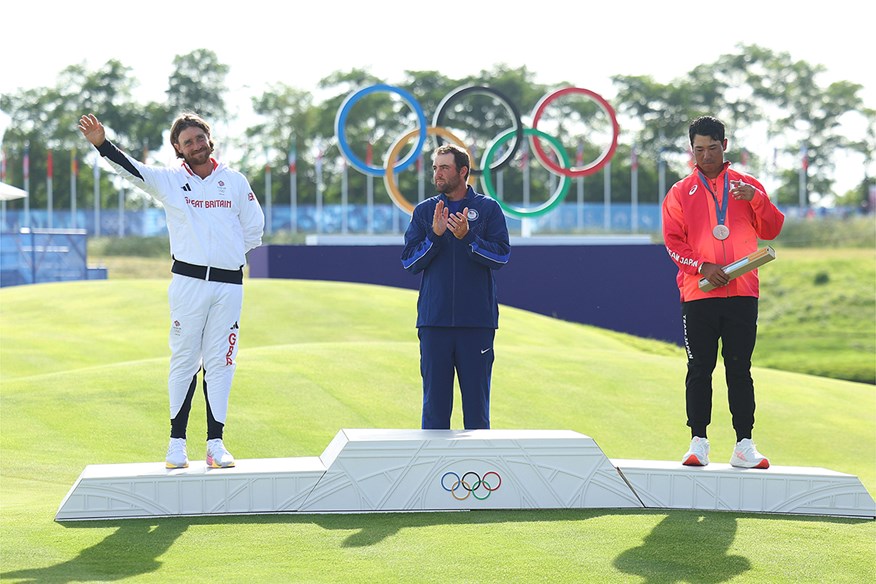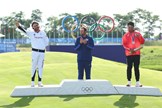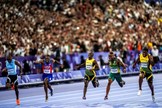Do players get paid for playing in the Olympic Golf and why is it such a contentious subject?
Last updated:
Prize money payouts are creeping into the world’s biggest sporting festival, but has it found its way to the newly reintroduced Olympic Golf events and why does the topic split opinion?
When the Olympic flame burns down to its dying embers in Paris, the world will reflect on their favorite moments of sporting prowess that determined the destiny of three colored metals across 329 events.
Perhaps it was the Turkish shooter Yusuf Dikec who ‘pocketed’ silver in the 10m air pistol mixed team event looking more casual than a hitman on holiday. Or perhaps it was the thrilling men’s 100m final where for the first time in history all 8 athletes dipped under the magical 10-second barrier with America’s Noah Lyles leaning into gold by 0.005 seconds.
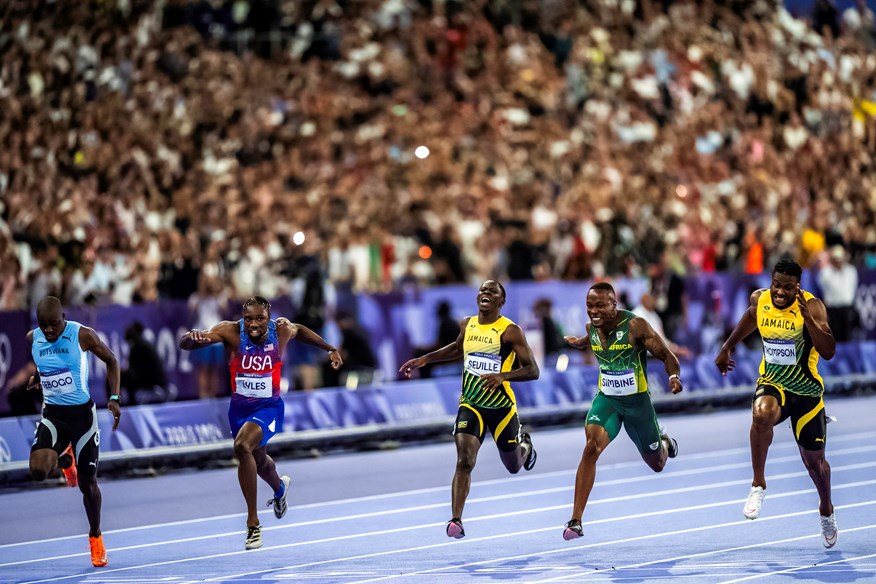
Two extremes of sport’s all-encompassing continuum that rewards precision and power with total parity, having done so since the Games of the 1st Olympiad in 1896 where Shooting and Athletics were one of the original nine events.
An Olympic medal for competitors in these events represents the absolute pinnacle of their sport. You won’t hear these athletes describe their medal as being ‘up there with’, or ‘right alongside’ other notable achievements on their resume.
It’s understandably why the re-introduction of high-profile, media-friendly sports such as tennis in the 80s and golf from 2016 to the Olympic program doesn’t sit comfortably in the eyes of many, despite the few to have stepped atop the podium holding their gold medal in the highest esteem.
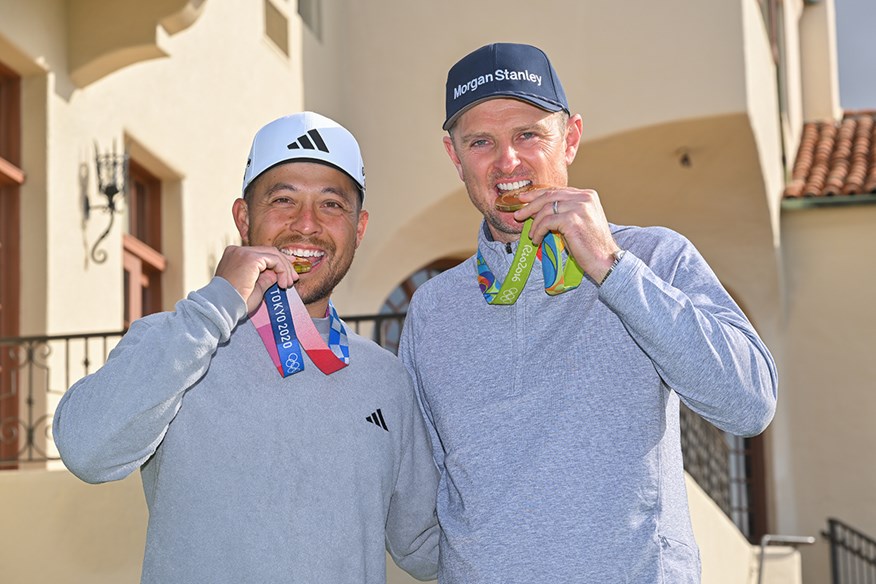
But given the choice to retire with one Grand Slam or one Olympic Gold medal, I will stick my neck on the line and say that the vast majority of tennis players and golfers will take the trophy.
Add to that the dizzying purses being played for on the professional tours and the Olympic-avoidance strategies openly employed by global superstars to avoid disruption to their annual plan, and you have the perfect concoction for resentment and bitterness.
British tennis star Emma Raducanu snubbed the Pais Olympics to avoid switching back to clay at Roland Garros. Arguably a shrewd move ahead of the American hard-court swing which has been her happiest hunting ground to date, but one unlikely to win her too many fans.
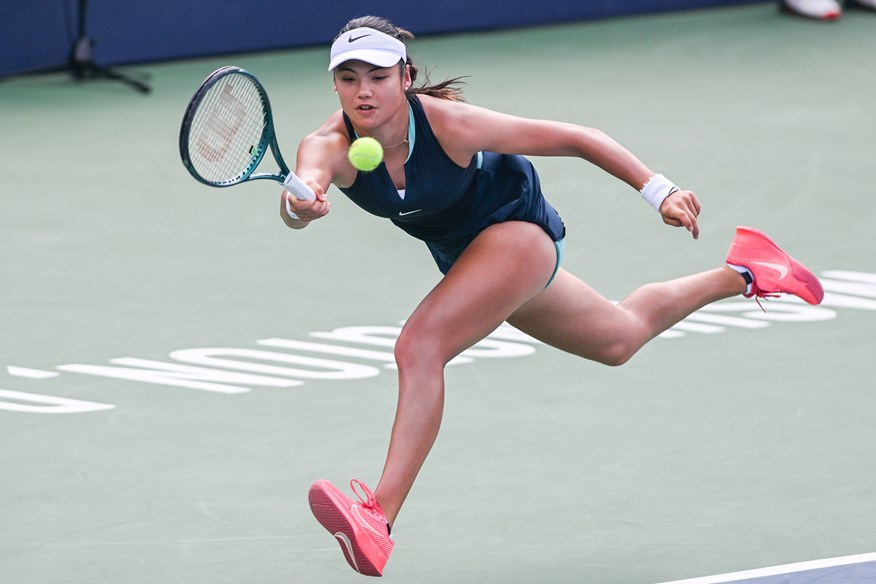
It’s the perfect case in point of why this debate will run and run for as long as even a small percentage of the world’s best players cite questionable reasons for swerving the Games.
The very thought would have Pierre de Coubertin somersaulting in his grave. The Olympic movement exists to build a better world through its values of excellence, respect, and friendship. Olympism is a movement that transcends sport and therefore surely trumps individual inconveniences. Why wouldn’t you want to forever be able to call yourself an Olympian?
Refreshingly, the Paris Olympic golf and tennis programs have been incredibly well respected by their top stars with a stacked leaderboard fighting for medals down the stretch at Le National and arguably the match of the year at Roland Garros for the men’s singles final between Novak Djokovic and Carlos Alcaraz.
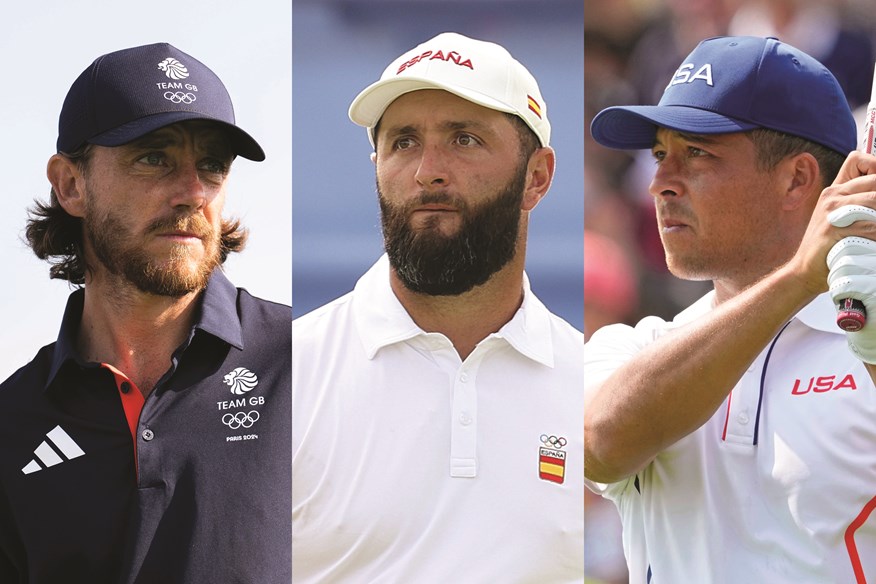
“I thought that 2012 opening ceremony, carrying the flag for my country, is the best feeling that an athlete could have, until today,” said Djokovic after his 7-6, 7-6 victory completed his lifelong ambition of securing a Golden Career Slam.
“This [winning gold] supersedes everything. Representing my country has always been the greatest priority and honor for me.”
Twenty-four Grand Slams, 99 tour titles, and $185 million amassed in prize money, but all it took was a missing gold medal to reduce the Serbian to tears as the ‘Boze pravde’ rang out in Paris. Tennis completed. The $218,000 paycheck and a national pension courtesy of the Serbian Olympic Committee was just a mere pat on the back for tennis’ most respected villain.
And just a couple of hours later, it was golf’s dominant force failing to hold back the tears after stealing gold in a comeback for the ages with a final round of 62 on one of Europe’s toughest tracks.
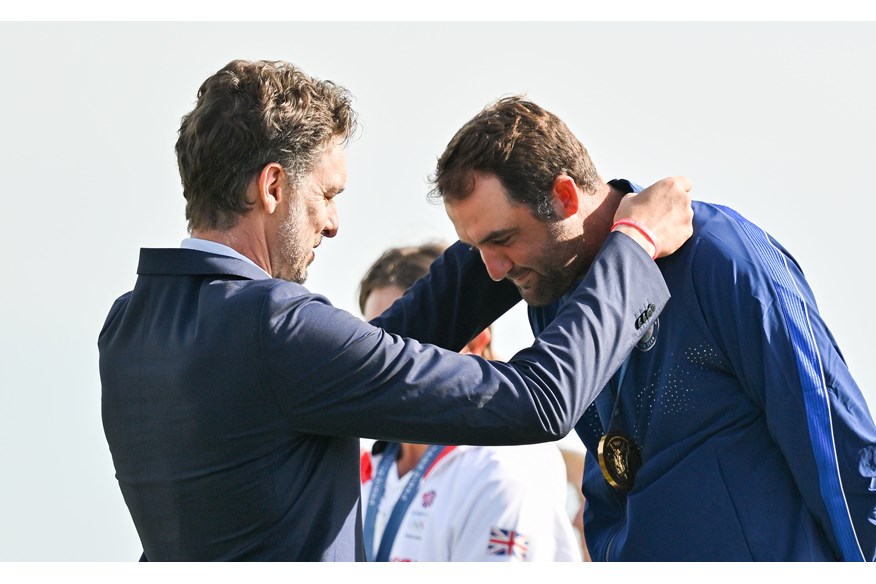
Scottie Scheffler has already racked up $28 million in prize money from the 16 events he has played this year. And like his tennis counterpart, Scottie’s Olympic triumph also topped up the bank balance, albeit by just $38,000. Cue the world’s smallest violin to commence.
Payment for medals in Olympic golf is at the discretion of national governing bodies as explained by IGF Executive Director Antony Scanlon.
“I think the whole model would have to change if there’s an expectation from athletes for payment. Some national governing bodies do provide payment to medallists, but it’s not a large sum of money, it’s more a token of their achievement. If we were to equate a gold medal to a major I’m not sure I could find 15 million for six medals.
“It’s something all the international federations have to consider and think about and recognize because of compensation for the athlete’s image and likeness throughout the Games, but I think it needs to be a very measured and well-thought-out discussion.”
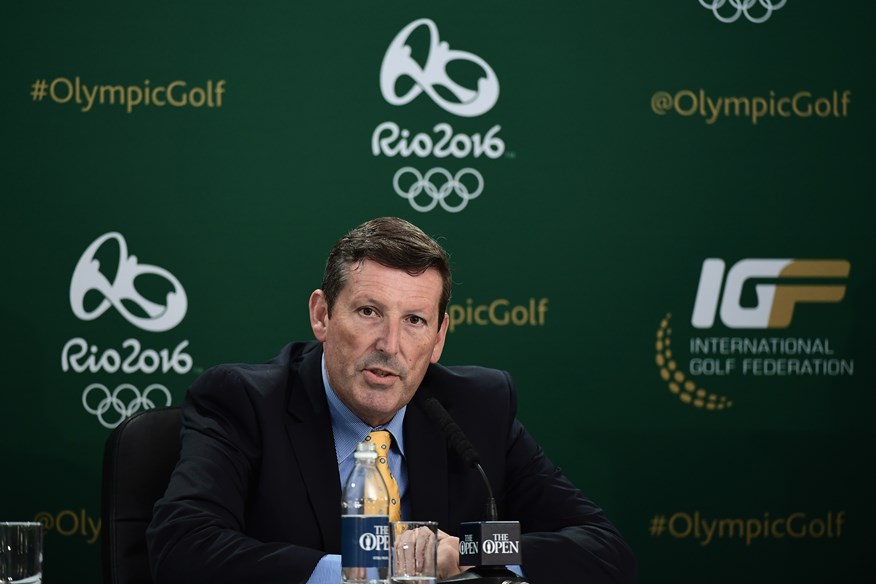
Only 14 counties awarded payouts to their medallists for returning an Olympic Golf medal with a substantial differential between their perceived soft-power value.
2024 Olympic Golf payouts by nation
Hong Kong: Gold – $768,000; Silver – $384,000; Bronze – $192,000
Singapore: Gold – $745,000; Silver – $373,000; Bronze – $186,000
Indonesia: Gold – $300,000; Silver – $150,000; Bronze – $60,000
Israel: Gold – $271,000; Silver – $216,000; Bronze – $135,000
Republic of Kazakhstan: Gold – $250,000; Silver – $150,000; Bronze – $75,000
Malaysia: Gold – $216,000; Silver – $65,000; Bronze – $22,000
Spain: Gold – $102,000; Silver – $52,000; Bronze – $33,000
France: Gold – $87,000; Silver – $43,000; Bronze – $22,000
South Korea: Gold – $45,000; Silver – $25,000; Bronze – $18,000
United States: Gold – $38,000; Silver – $23,000; Bronze – $15,000
Japan: Gold – $32,000; Silver – $13,000; Bronze – $6,000
Poland: Gold – $25,000; Silver – $19,000; Bronze – $14,000
Germany: Gold – $22,000; Silver – $16,000; Bronze – $11,000
Australia: Gold – $13,000; Silver – $10,000; Bronze – $7,000
Two of those nations are Spain and South Korea, who both harbored strong hopes of paying out on their global superstars in Jon Rahm and Tom Kim respectively. And with just nine holes remaining, the Royal Spanish Golf Federation would have been preparing a cheque for $102,000 after Jon Rahm opened up a four-shot lead.
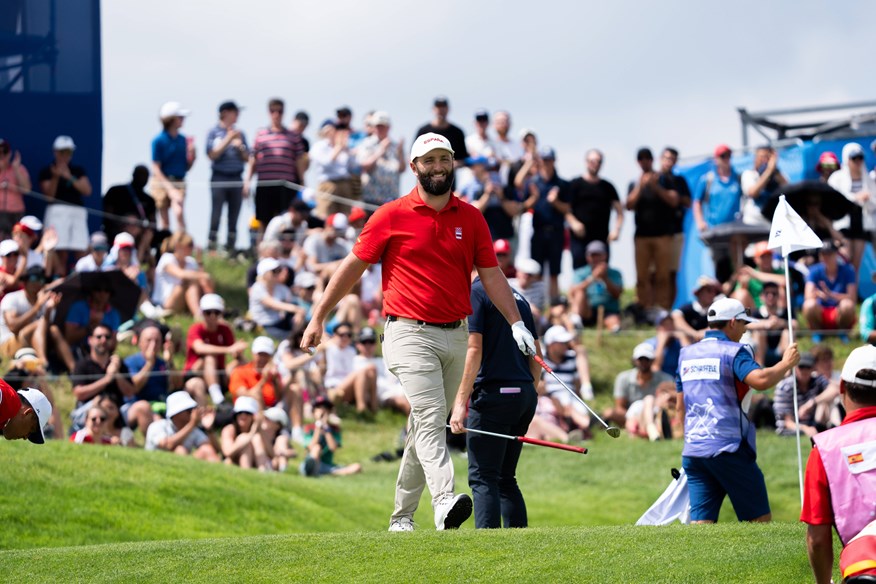
That was before LIV Golf’s $450 million man spectacularly collapsed to finish outside the medals completely. Unlike the vast majority of athletes competing across the Games, however, losing $100K is likely of little significance to the Spaniard.
Instead, it was the rare opportunity to prove he can still dominate a world-class field in golf’s new world order and the missed chance to remind Luke Donald he is still the dependable talisman he needs that will hurt the most.
It was a very different type of hurt for South Korean Tom Kim though, who in finishing four shots adrift Japan’s Hideki Matsuyama in bronze meant he and teammate Ben An remain obliged to complete between 18 and 21 months of military service, ideally by the time they are 28.
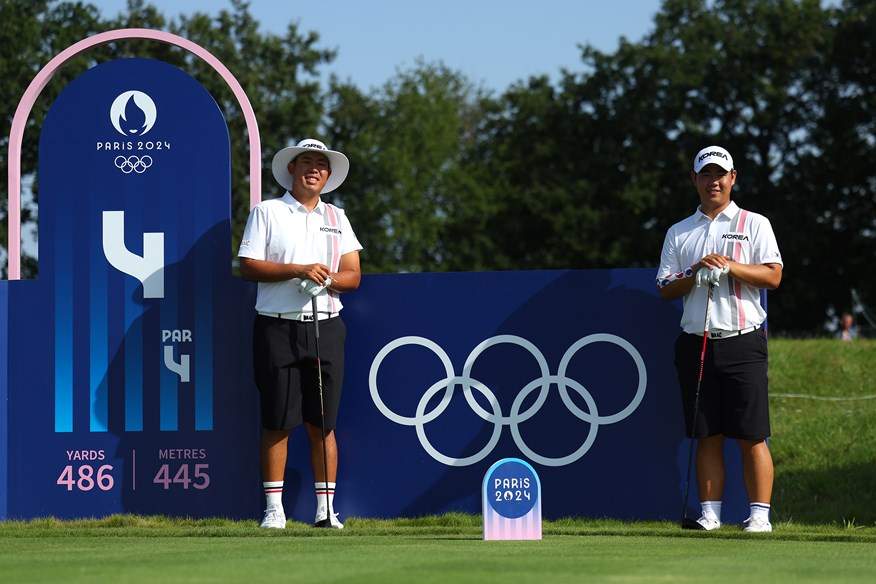
Kim will at least get one more shot, if selected, at exemption when the Games reach Los Angeles in 2028. He’ll still only be 26.
The World No.18 insisted his tears in the scoring hut after failing to secure a medal were due to exactly that as opposed to missing out on exemption from conscription. They certainly weren’t for the $18,000 dollars on the line for a bronze medal. His caddie likely earned close to that for a 15th-place finish at the Scottish Open a few weeks earlier.
So, while there is prize money in Olympic golf for some nations, it begs the question as to who is really pushing for it and why national federations wouldn’t prefer to use it for grassroots projects and growing the game back in their homeland.
There is a more logical argument for the landmark decision by World Athletics to award gold medallists from their 48 events with $50,000 of prize money despite five-time Olympic champion rower Sir Steve Redgrave’s argument that gold medallists in athletics are “capable of earning significant money before and after Paris.”

On the other side of the coin, World Athletics President Sebastian Coe said: “While it is impossible to put a marketable value on winning an Olympic medal, or on the commitment and focus it takes to even represent your country at an Olympic Games, I think it is important we start somewhere and make sure some of the revenues generated by our athletes at the Olympic Games are directly returned to those who make the Games the global spectacle that it is.”
The athletics Diamond League Final awards its champions with $30,000, valuing an Olympic gold medal significantly higher than winning the sport’s flagship annual competition.
Of course, not all sports at the Games can finance a £2.4 million prize fund which inevitably creates an unintended ‘us and them’ situation according to Redgrave, who points out that without continued public funding his “sport will die.”
But that’s the state of play we find ourselves in and it would probably be naïve not to think that one day every Olympic athlete will be rewarded with some form of financial remuneration.
Whether that detracts from the purity of Olympic competition is for us all to decide individually, but glowing endorsements from the sport’s most influential athletes can only add weight to golf’s Olympic cause.
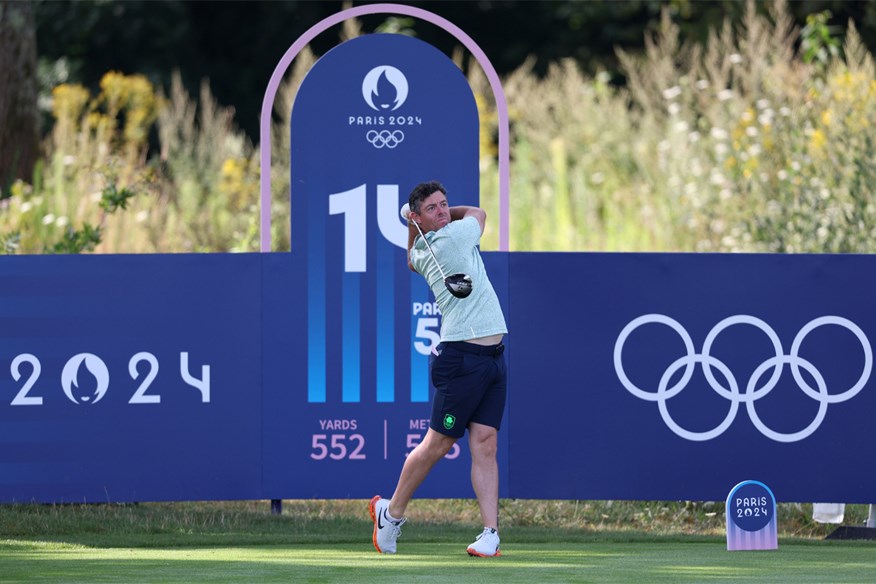
“I think with how much of a s**t show the game of golf is right now and you think about the tournaments that might be the purest form of competition in our sport, we don’t play for money in it, said Rory McIlroy after finishing just outside the medal places.
“It speaks volumes for what’s important in sports and I think every single player this week has had an amazing experience.”
The Northern Irishman’s sentiments were echoed by GB&NI’s chequeless silver medallist Tommy Fleetwood who said: “As a young boy taking up the game of golf, none of us had a chance to win Olympic gold so it was never on our agenda.
“That quickly changes when you’re part of the Olympics and it feels unbelievably special. I know I didn’t win gold but standing on that podium with a medal was one of the most amazing moments I’ve had as a golfer.”
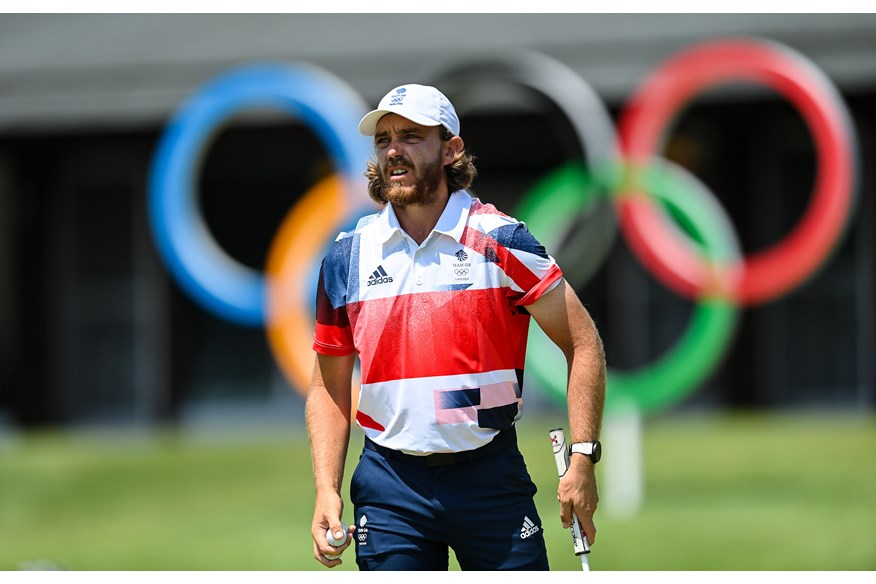
As Antony Scanlon stresses, the side product of golf at an Olympic Games is the “exposure to a vastly different audience” and providing a platform to the best players in the world that is typically unobtainable through golf’s traditional broadcast, inspiring those who thought golf wasn’t for them to come and try this game out.
Prize money aside, the men’s competition at Le National was sporting drama of the highest draw, and few will argue its quality was not of an Olympic caliber. Here’s hoping for more of the same when the women’s event gets underway.
2024 Men’s Olympic Golf prize money payouts
Gold: Scottie Scheffler (United States) – $38,000
Silver: Tommy Fleetwood (Great Britain) – $0
Bronze: Hideki Matsuyama (Japan) – $6,000
